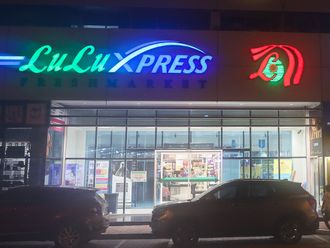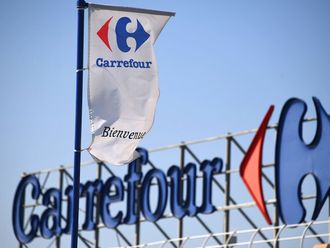If national economies can gallop ahead with a bit of doping, China is ready to do it again. With the stimulus and incentives measures post-2008 crisis running their course, a slew of more performance-enhancing policies are in the pipeline to give that extra fillip to consumer spending.
At the dawn of the new year, the government reportedly put together a draft for various stimulus programmes aimed at increasing domestic buying over the next few years. While details will be released in April, the incentives could be in the form of fresh subsidies to buy electrical appliances and energy-effective vehicles, along with mega blueprints for local governments to modernise logistics networks and earmark various cities as ‘spending hubs'.
If this sounds in conflict with the regime's recent grand promises to limit its own role and allow market forces a free reign, so be it. Macro policy demands that China needs to expand domestic consumption in the years ahead. What better way to achieve this than to give a healthy nudge of subsidies, so that it can meet its appetite for ambitious targets. By 2015, it wants total annual retail sales of consumer goods to reach 32 trillion yuan (Dh18.63 trillion), with an average annual increase of about 15 per cent.
Unsure markets
This incentive strategy, however, has not done much for the markets as yet. The Shanghai Composite closed lower after some modest gains midweek, overwhelmed by speculation that corporate earnings growth will be modest. Chinese retailers have been on a slide down, despite this being holiday season with pumped up sales.
Still, no one is pushing the panic button just yet, if IPO market projections for 2012 is any indication. As much as $47.6 billion (Dh174.69 billion) is expected to be raised through initial public offers in Shanghai and Shenzhen with retail, consumer goods and services, industrial products companies likely to be first off the blocks. This, provided global uncertainties show signs of ebbing.
Blessing in consumption
Weak Western demand and slowing exports will probably make it imperative for China to dash off a new dose of incentives. On paper, and in the short term, subsidies seem to work well for various sectors. Sales of household appliances in China's rural areas surged 53.1 per cent year-on-year in 2011 to 264 billion yuan, boosted by government sops.
Under the previous subsidy programme, implemented only in rural areas, farmers received subsidies equal to 13 per cent of the prices of designated types of refrigerators, televisions, washing machines, computers, air conditioners, mobile phones, water heaters, microwave ovens and traditional ovens. Since December 2008, when subsidies were first introduced, the government handed out 59.22 billion yuan in subsidies on the sales of home appliances valued at 505.9 billion yuan. The success of its subsidy formula has only encouraged the government to continue with it.
Wheels of growth
A vital recipient of incentives was the auto sector, which saw two years of explosive growth, even catapulting China into the world's biggest auto market slot. But in 2011, as government tax rebates for small cars, trade-in subsidies and incentives for rural buyers was phased out, the sector began to cool. Total sales rose just 2.5 per cent to 18.51 million units last year, compared with an increase of more than 32 per cent in 2010.
Fortunately, the non-subsidised sector also recorded growth. China's luxury car sales, comprising foreign brands, put up a robust show, despite increasing external pressures. Brands such as Audi, BMW and Mercedes-Benz performed well in 2011, with the German carmakers planning to add capacity and new models. International automakers with production joint ventures in China are increasingly using their bases here to export models to emerging markets, posing a challenge to domestic players who have overseas ambitions.
Protect local
And therein lies a conundrum for policy-makers. Ever since China entered WTO, the march of international enterprises into its market has threatened the business of local brands, especially in the auto and chemical consumer goods industry. Surveys show that the FMCG sector, dominated by multinational conglomerates such as Unilever, Procter & Gamble and Bayer Group, have overshadowed indigenous brands, which have lost control over a market which is expanding at an exponential rate. Therefore, any fresh sop now is likely to come with a pinch of ultra-nationalism.
The writer is a freelance journalist based in China.












